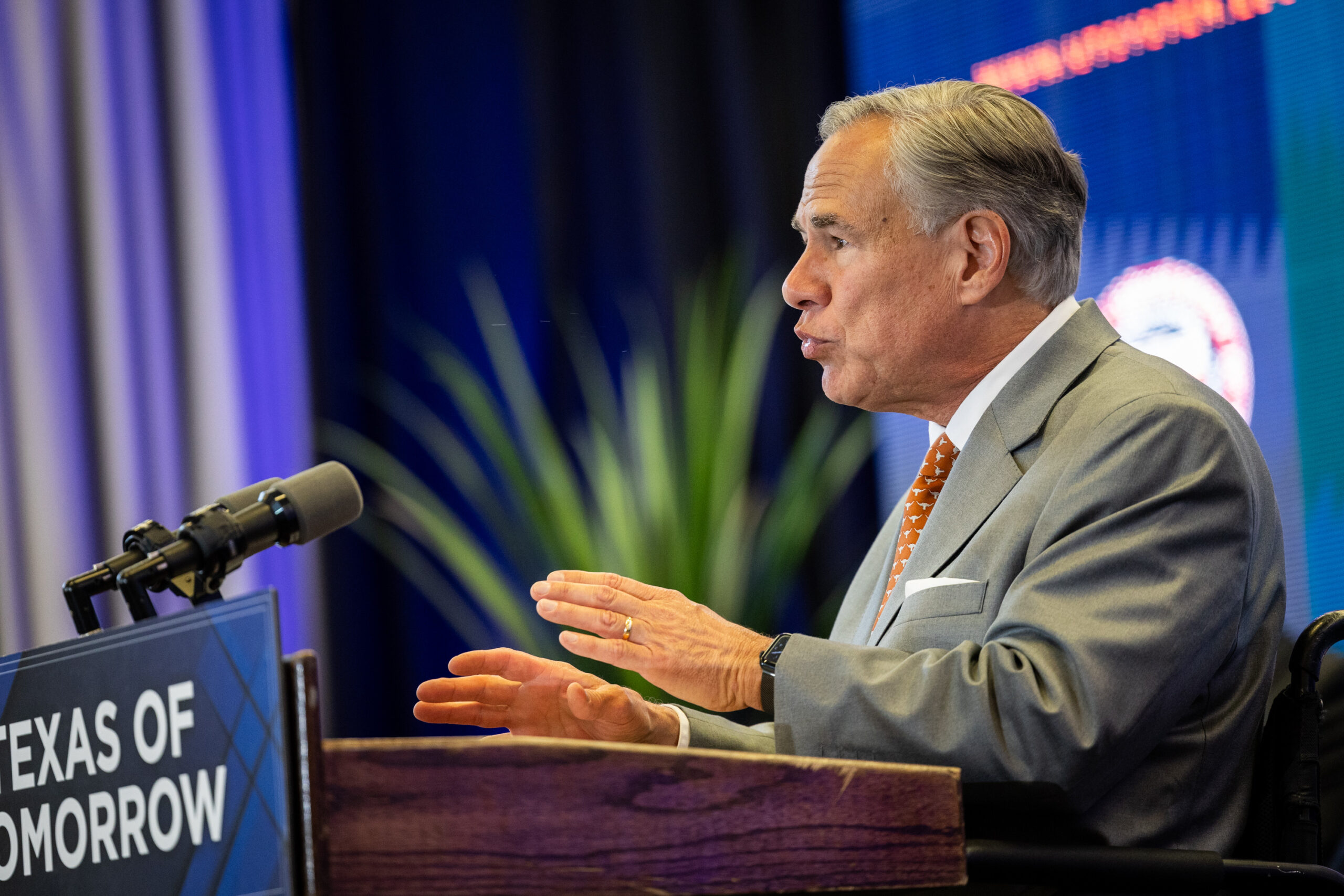A plan to restructure parts of the National Guard, the military’s state-based reserve forces, is drawing criticism from all of the country’s state governors.
The Biden administration’s proposal would move certain members of the Air Force Guard over to Space Force, where they would be full-time enlisted personnel. The governors recently sent a letter to the Department of Defense opposing the move, which Texas Gov. Greg Abbott said sets a “dangerous precedent” for the federal government.
Rose Thayer, an Austin-based reporter for Stars and Stripes, spoke to the Texas Standard about the proposal.
This transcript has been edited lightly for clarity:
Texas Standard: First, why does the Department of Defense want to move some of these Air Force guard members over to Space Force?
Rose Thayer: Well, you know, Space Force is our newest military service branch. I think it’s been around about 4 1/2 years now. And part of the creation of Space Force was to take all of the military’s space assets and units that exist in all the service branches and co-locate them under the Space Force.
This move is just part of that. It’s already happened with Army units, Navy units, Air Force units. And so now they’re starting to look at some of these guard and reserve units.
How many personnel might this actually affect, to your knowledge?
Well, if you ask the Air Force, they say it is 578, and 224 of those jobs are full-time jobs; about 350 are part-time.
If you ask the governors who you mentioned, who have come together to voice their opposition to this plan, they would say it’s closer to 1,000. But I believe where they get that number from is they are including the airmen that provide support for those space units in question.
You know, it’s not just governors concerned here. You report 140 House lawmakers, senators and the governors of all 50 states, and we should mention five territories. Republicans and Democrats have expressed concerns about this proposal. Talk about a pile on here. What are the governors’ main objections to this idea?
I think the biggest objection here is that, you know, members of the National Guard have a dual-hatted role where they do serve the federal U.S. military, but they also serve in their state. And so they do follow the chain of command of either the Army or the Air Force, but they also follow their state chain of command.
And this proposal from the Air Force is asking to move these units without asking permission of the governors.
» GET MORE NEWS FROM AROUND THE STATE: Sign up for Texas Standard’s weekly newsletters
Well, I mean, this has got to be about more than authority because it seems like, of course, we are talking about the financial factor, but then you think about where the guard comes into play, and that’s often during weather disasters, for example. I mean, is that the biggest factor here?
You know, the governor of Colorado brought up a great point in that one of the arguments is that, well, these airmen that are doing space missions are already helping a federal mission anyways. There is no state space mission.
But, Governor [Jared] Polis in Colorado, his space unit has been activated on state orders for every state mission since 2000, so for the last 24 years. And every wildfire season, they provide support there for communication, satellite communications and, you know, weather mapping and things to help fight wildfires.
We haven’t talked about what Air Force Guard members themselves have to say. What are you hearing from members of the Air Guard?
They’re worried. I mean, there was a call last week that had several Air National Guard members participating and voicing their concerns. And, you know, the way the Air Force has this laid out is they would have the option to join the Space Force and it would, you know, put them in the regular active duty military, or they can retrain and stay in the Air National Guard.
So really, their choice is to become an active duty service member again and perhaps lose a civilian full-time job, have to move somewhere, or to retrain and lose a job that they probably really enjoy and maybe do part-time because they want to serve, but they have a civilian job that pays better.
Is this going to happen? Is this a fait accompli, or no?
I can’t speak on whether or not I think they’re going to change their mind. But I can say it seems that Congress is paying attention. And it’s really up to either the Armed Services Committee to say no or for the Air Force to to pull back.
Is there a timetable yet?
Well, they want to loop this into the annual defense budget bill, which over the last few years has passed around the December time frame.














